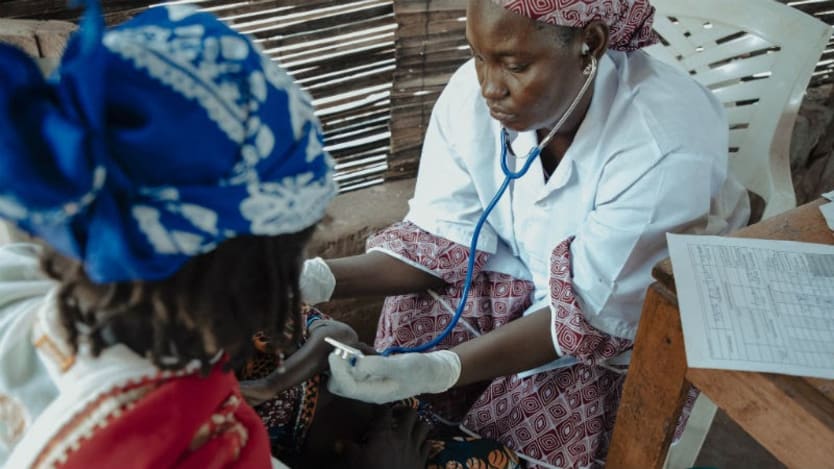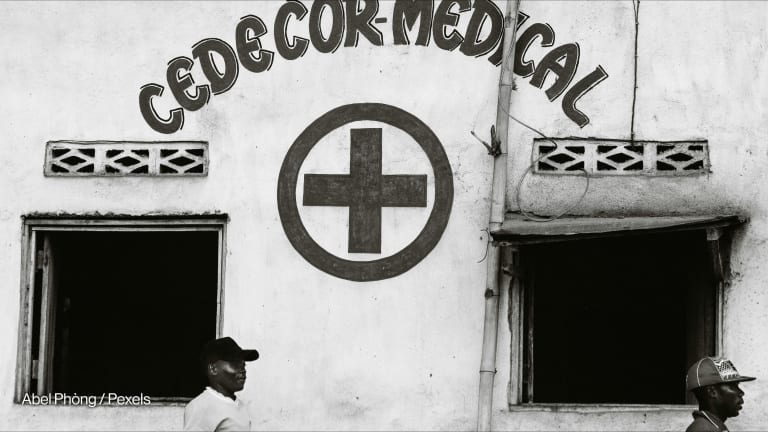
In 2019, global wealth grew to $360 trillion.
It’s hard to imagine what global wealth of $360 trillion looks like and means. To put that amount into some perspective, we only need a relatively small portion of it — $176 billion — to close the gap to achieving universal health coverage by 2030 in the world’s 54 poorest countries.
We know that these financial resources exist, just as unmet needs exist. The question is: How do we catalyze and direct resources to meet those needs?
One way is through the Global Financing Facility for Women, Children, and Adolescents, launched by the World Bank in 2015 with the intention of helping governments in low- and middle-income countries transform how they prioritize and finance the health and nutrition of their people. The ultimate goals are to end preventable maternal and child deaths and better meet the health needs of women, children, and adolescents.
Here is how the GFF financing model is intended to work: It takes a relatively small amount of funds from the World Bank, as well as from private donors and country governments that invest in GFF, and leverages those into greater commitments from other funding sources.
At its launch, supporters were clear that GFF would work with national governments to mobilize additional domestic resources to ensure sustainable financing for health services. The priorities for spending those resources are up to national governments and stakeholders, including civil society organizations working with the populations.
There is no doubt that country ownership — and country leadership — is critical. We need to put national governments at the center of generating and allocating resources and deciding priorities.
Yet more than four years after GFF’s launch, new research shows limited evidence that national governments are actually committing domestic resources to meet the health needs that GFF was created to address. While some national governments, such as those for Uganda and Kenya, have secured loans to expand resources available for health, it is unclear if borrowing is a sustainable way to meet health needs. Even where there is evidence of governments allocating their own resources to health — for example, in Rwanda and Nigeria — the amounts are relatively minimal.
We are at a pivotal moment. GFF is currently expanding its operations to nine more countries — Chad, Ghana, Mauritania, Niger, Pakistan, Somalia, Tajikistan, Zambia, and Zimbabwe — bringing the total number of GFF-supported nations to 36.
The stakes of not getting the funding right — and of inaction by national governments — are high. Out of every 100,000 women giving birth in Zambia, 224 will not survive. For every 1,000 newborns in Uzbekistan, about 14 will not see their first birthday.
We have the opportunity to consider whether the right conditions are in place to catalyze domestic resources for health. Are international funders like the World Bank and the International Monetary Fund really delivering on the oft-stated commitment to support national governments to mobilize domestic resources for health?
In order to be eligible for World Bank loans, countries typically have to prove that they abide by certain conditions from IMF. New findings show that policy conditions imposed by IMF resulted in national governments ultimately implementing budget cuts in public services or restricting public sector jobs. When this happens, we see grave impacts on health workers and the delivery of health services.
We see the health impacts of broader economic policies in places such as Niger, where the government is currently spending almost as much on paying off debts as on health, in proportion to the GDP. In Chad, another new GFF country, evidence shows that policies to balance income and spending resulted in halving the health budget between 2013-2017. These cuts meant, among other things, pregnant women not being able to benefit from free emergency health care programs, despite being entitled to them.
If international financing institutions really want to help governments deliver health goals, they need to consider whether they are simultaneously tying the hands of governments. Sustainable health financing requires rethinking the burden of debt faced by many countries and the types of economic policies that will allow health systems to flourish.
$360 trillion of total global wealth — how will we account for ourselves if a greater proportion of that amount is not galvanized to meet global health needs? We need to get honest about whether the processes we are putting in place to mobilize those resources are working as best they could.









